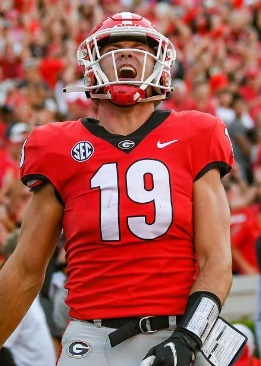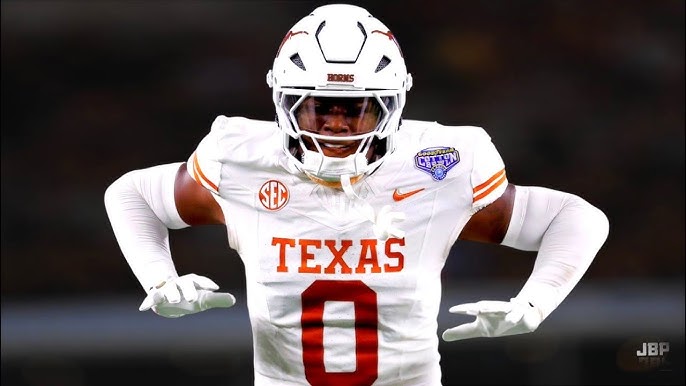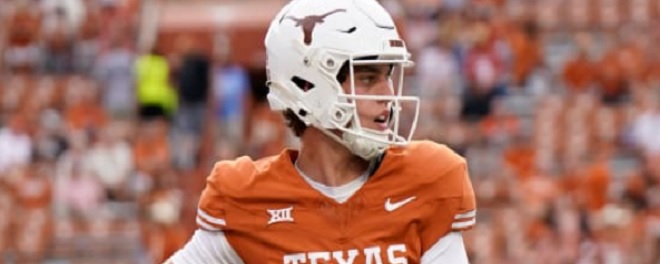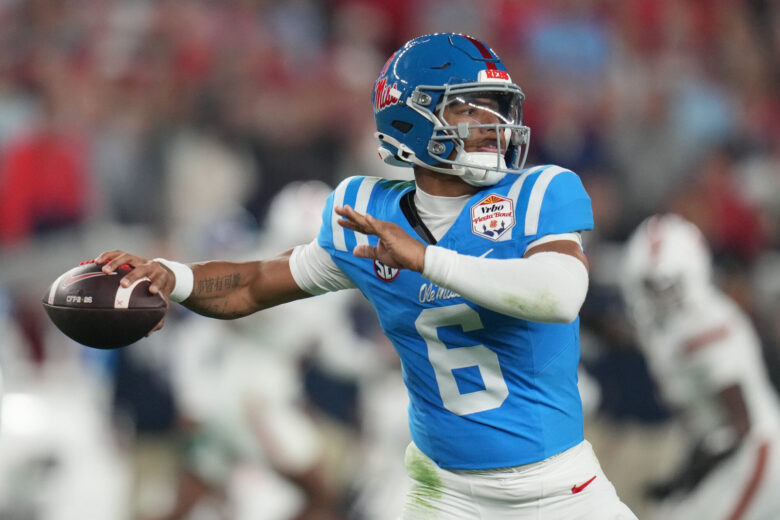
|
|
Brock Bowers Scouting Report
By Charlie Campbell
Strengths:
- Mismatch weapon
- Fast for a tight end
- Speed to separate; shakes and runs by defensive backs
- Excellent route-runner
- Burst out of his breaks
- Change-of-direction skills
- Athletic; agile
- Superb after the catch
- Excellent red-zone weapon
- Superb at 50-50 passes
- Never truly covered
- Leaping ability
- Good catch radius
- Makes catches with ease over defensive backs
- Outstanding middle-seam tight end
- High points the ball well
- Superb body control
- Quick release off the line
- Size/speed mismatch versus defensive backs and linebackers
- Adept at finding the soft spot in zone
- Tracks the ball well
- Fights hard as a blocker
- Hits blocks on the second level
- Can sustain his blocks
- Long-term starting potential
- Effective against good competition
- Intelligent
Weaknesses:
- Undersized
- Lacks strength
- Will struggle as an inline blocker
Prospect Summary:
Over the past couple of seasons, the Georgia tight end room was known as being supremely talented with a trio of Bowers, Darnell Washington and Arik Gilbert. Washington and Gilbert would have been starters at most schools, but with Bowers in Athens, they had to settle for backup roles. Bowers was a dynamic force and clutch playmaker who was a vital contributor to the program’s back-to-back National Championships.
In 2021 and 2022, Bowers was the most dangerous and effective weapon on the Georgia offense. While many schools are led by a star quarterback, running back, or wide receiver, Bowers was clearly the most talented player on the Bulldogs’ scoring attack over those two seasons. He was a freshman sensation in 2021, hauling in 56 catches for 882 yards and 13 touchdowns. In 2022, Bowers recorded 63 receptions for 942 yards and seven scores. He took nine carries for 109 yards – an 12.1-yard average – and three touchdowns.
In 2023 over 10 games, Bowers recorded 56 catches for 714 yards and six touchdowns. He missed a few contests due to a high ankle sprain. Bowers came up with some huge clutch plays against Auburn, putting his team on his back to squeak out a win in a near-massive upset of Georgia.
For the NFL, Bowers has the ability to be a potential Pro Bowl tight end who is a three-down starter and a difference-maker. He is a phenomenal receiving tight end who is an extremely difficult player to cover. Bowers is a very good route-runner who is skilled at finding the soft spot in zone coverage and presenting a big target for his quarterback.
While Bowers does not have crazy speed or freak athleticism like a Kyle Pitts, Bowers is fantastic at winning contested catches by using his size to gain better position. With his leaping ability, Bowers high points balls naturally and is very dangerous on 50-50 passes. For a smaller-bodied tight end, Bowers has excellent ball-adjustment skills, showing a natural ability to make difficult catches by contorting his frame. He will be a tremendous red-zone weapon in the NFL. Bowers has strong hands and is very reliable. When his quarterback is in trouble, Bowers is a great asset for them to throw the ball up to him knowing he will probably get a reception or incompletion.
The question with many tight ends is speed, and Bowers definitely has speed. He possesses a second gear in the open field and can run away from defenders. Bowers is a quick tight end who gets downfield, maintains his speed while cutting, and is smooth through the route. Given his speed, athleticism and strength, Bowers is dangerous after the catch to rip off yards and turn routine catches into big plays.
There are usually less than a handful of tight ends who can be split out wide from the line and generate separation with their sudden quickness and route-running from NFL safeties and cornerbacks. Travis Kelce and Darren Waller had that ablity in their prime; Kyle Pitts has that ability if he were used that way; and Bowers has that special kind of ability for the next level. Bowers is a real problem in coverage because he is too big and quick for safeties while being too fast for linebackers.
As a blocker, Bowers is not a typical receiving tight end. Many receiving tight ends are disinterested and weak blockers, but that is not the case with Bowers. While he is not going to dominate and overpower a defensive end, he will use his frame to tie up defenders and he can often get the job done. For many pro tight ends, just having the desire and attitude to be a willing blocker is all teams need to function in that role, and Bowers has the tenacity. That being said, he is impressive at hitting blocks in the second level, and in 2022, he sprung some big plays for Georgia by hitting blocks on linebackers and defensive backs on the perimeter.
Team sources say Bowers lacks size and isn’t strong, so he is going to struggle as an inline blocker in the NFL. Pro defensive ends are bigger, stronger and longer, so Bowers could have problems trying to block them. Bowers could contribute as a blocker in two-tight end sets, but he lacks the size and strength to be a true Y – blocking tight end. He will be a three-down starter as a pro, but he might get rotated out when his team needs a blocker in the game.
Bowers looks likely to be a top-20 pick in the 2024 NFL Draft. He could end up as a top-10 selection.
Prospect Comparison:
Jonnu Smith. In terms of style of play, Bowers looks liked San Francisco’s George Kittle (6-4, 250) in his games with Georgia. Kittle, however, is significantly bigger than Bowers by 20 pounds and has more height and length. Jonnu Smith (6-3, 248) is closer in size to Bowers, and Smith has been a dangerous receiving tight end in the NFL. Smith and Bowers are fast, good route-runners with athleticism. They also are undersized for blocking NFL front-seven defenders. Thus as a pro, Bowers could end up being a player similar to Smith.
RELATED LINKS:
2026 NFL Mock Draft - Feb. 12
NFL Picks - Feb. 9
Fantasy Football Rankings - Jan. 29
NFL Power Rankings - Jan. 26




